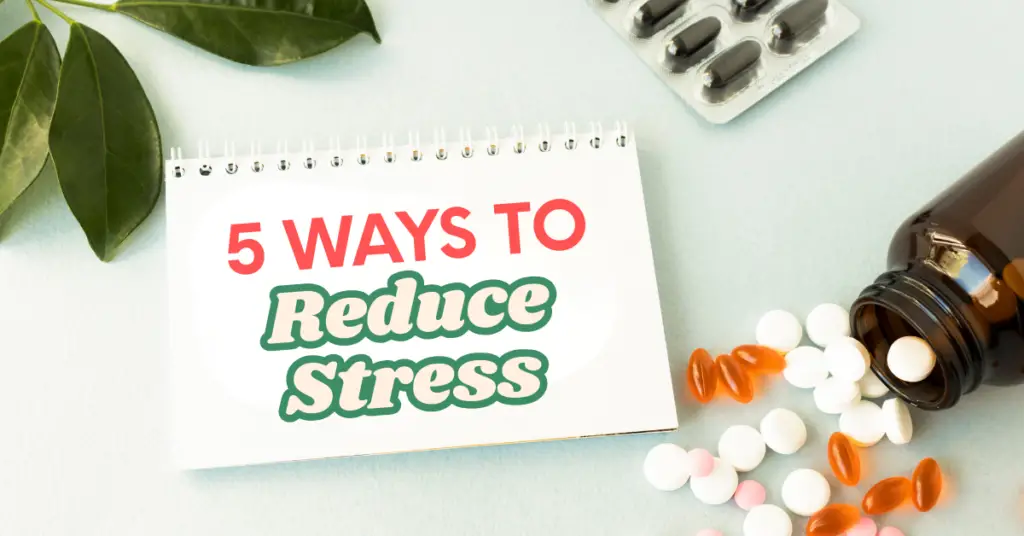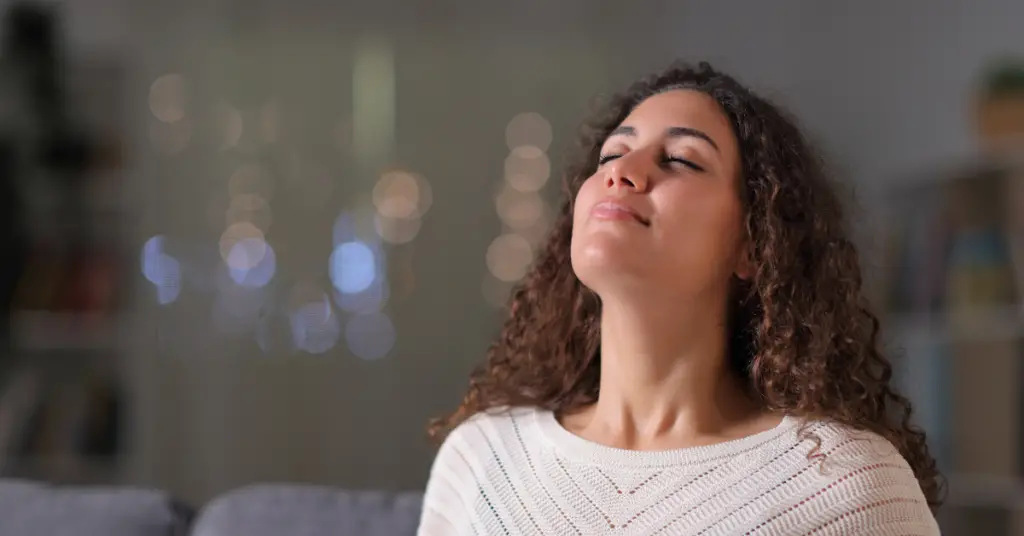
It is no wonder stress and anxiety are increasing in our fast-paced world. Anyone with a full-time job also knows that your to-do list or note-keeping app may start feeling a little crowded at times and getting stress management under control seems like just another item to check off on the never-ending checklist of life: work + family + personal goals + curveballs = plenty of room for feeling overwhelmed. But whatever the situation is, it is unsafe to have stress and anxiety about anything as they are not good for mental well-being. Chronic stress which can disrupt sleep, immune function, relationships, and all aspects of life. However, it is a multifactored problem by nature, and there are solutions available.
Now, let us look into 5 proven methods that can help relieve anxiety and stress. These strategies are the opposite of hacks and will take a few moments to implement as habits into your day, giving you long-term relief and resilience.
1. Mindfulness Meditation: A Path to Inner Calm
One Superpower Type Tool To Reduce Stress And Anxiety Is Mindfulness Meditation That is the practice of being mindful, noticing what is happening at the moment as it happens without judgment — your breathing, whatever you feel or might smell around you. Studies have demonstrated that people who practice mindfulness meditation experience lower levels of anxiety, as it enables them to identify and observe their thoughts and feelings in a way which helps manage stress.
To me, the greatest advantage of mindfulness is that it is available to all. No equipment is required and may be performed anywhere. Just a few minutes of mindfulness each day can change how you feel.
How to Start:
- Find a place to sit where you can be alone.
- Take a moment to close your eyes and concentrate on the air around you Feel breath, going in and out of your body
- If you find that your mind starts to drift (which is the norm!) Now allow yourself to return gently back in the moment with your breath.
- Begin with just five minutes of practice per day and work your way up as you become more comfortable.
2. Physical Activity: Move to Boost Your Mood

And exercise helps alleviate these stress and anxiety stronger than any other natural remedy. When you work out, endorphins are released into your bloodstream. It can also take your mind off of the anxious thoughts, so you do not have to mentally deal with that stressor. Whatever form of exercise you do be it walking or jogging, yoga sculpts your body while also elevating moods and relieving tension like weights.
Distress and anxiousness administration analysis has proven exercise at even average depth, like brisk strolling, would be the most effective in some circumstances. The type of workout can also help induce sleep or improve the quality of it which is how exercise has an indirect effect on mental health. If you are new to exercising, you do not need to run a marathon. Do some type of movement you like, and go from there.
How to Use Exercise for Relieving Stress:
Do So Because You Like It: Take part in the exercise, which is not as intense it does not have to be more efficacious. Choose a physical activity that you genuinely love, whether it be dancing, hiking, going for a swim, or doing yoga.
Start Small and Achievable: You should exercise 150 minutes (2 and a half hours) every week Although just as little as 10-15 minutes a day can add up to a lot.
Create Social: Combine exercising with socialization–by finding a workout buddy, or joining an exercise class to make it more of an event that will release stress in both ways.
3. Practice Deep Breathing Techniques

In times of stress or anxiety, we typically breathe shallow and fast making us more panicked than we already are. A simple and effective method to soothe the body and mind is deep breathing. This stimulates the parasympathetic nervous system, which is the reversal of the fight-or-flight response that occurs with stress. The outcome is a lower heart rate, relaxed muscles, and a more tranquil mind.
One common practice is box breathing, in which inhalation, breath retention, and exhalation are balanced in equal counts. It’s easy to do anywhere, and takes only a few minutes–instant relaxation!
How to Practice Deep Breathing:
Box Breathing: At a pace of four, slowly inhale, pause for four counts, exhale for four counts, and hold your breath again on the fourth count. Perform this cycle a few times.
Deep Breathing: Place one hand on your chest and the other on your stomach. Breathe in through your nose, inflating the belly (not the chest) with air. Breathe out cautiously from your mouth.
4. Prioritize Sleep: Rest Your Way to a Calmer Mind
There is this negative spiral of poor sleep and stress: Stress leads to a sleepless night, a sleepless night adds up to increased stress, and so on. A rested mind knows how to deal with the trials of life, while one who needs sleep is prone to irritability, anxiety, and exhaustion.
Good sleep hygiene- a nighttime routine and environment that allows you to get integrated into having a better quality of sleep. Stick to the same schedule when it comes to going to and waking up in bed each day and forgo caffeine or electronic devices shortly before bed. Therefore, create a relaxing nightly routine to let your body know it is time to settle in for the day like reading a book, taking a hot bath, or doing deep breathing.
Tips for Better Sleep:
Establish a Soothing Pre-Bedtime Ritual: Steer clear of electronic devices and stimulating tasks in the hour leading up to sleep. Instead, read or hear something peaceful music.
Cut Down on Caffeine and Alcohol: They behave like sleep-stealers, so do your best to keep their consumption sporadic — or at least not right before going to bed.
Maintain a Regular Routine: Fall asleep and rise at the same time daily, and even on weekends. Maintaining this schedule regulates the internal clock of your body.
5. Connect with Loved Ones and Build Social Support

Reducing stress and anxiety is one of the most significant assets of human connection. As human beings, we are naturally inclined to be social, and when the stress seems insurmountable it could be really helpful to connect with other people. The interaction during socialization gives you a sense of belonging and security, and oxytocin-the ‘love hormone’, known for its calming effects on your minds is released.
Speaking out, whether in the form of a good talking session with your best buddy, a family member or even a support team can assist you in processing and coping with stress. Social support is known to help buffer and insulate us against stress, anxiety, and stress-induced disease. Talking to someone about your feelings or experiences, even if just for a moment, can offer relief.
Ways To Build Up Connections Socially:
Regular Check-ins: Arrange to call or meet occasionally with a friend or family member, even if only for a few minutes.
Connect with a Fellow Human or Support Group: If you are facing specific stressors (caregiving, parenting, work stress) find others going through similar situations – perhaps even a support group!
Offering your time to volunteer or even just participating in group activities is a great way to help other people as this offers a sense of purpose and the opportunity to build new relationships and gain some prevention from stress.
Final Thoughts
Stress and anxiety will always be part of our lives, however, we have strong tools to cope with these feelings. Be it mindfulness, exercise breathing exercises, however getting to sleep right, or spending time with others, possibilities of acquiring greater resilience and calm. It may take time, and it makes sense why– but with enough practice, you can find a new sense of equilibrium and peace that will allow you to approach all the things life throws at you— in a different way. Always keep in mind that you need not combat stress by yourself – there is your support and each stride to fight against it is a breakthrough towards becoming someone healthier, better you.